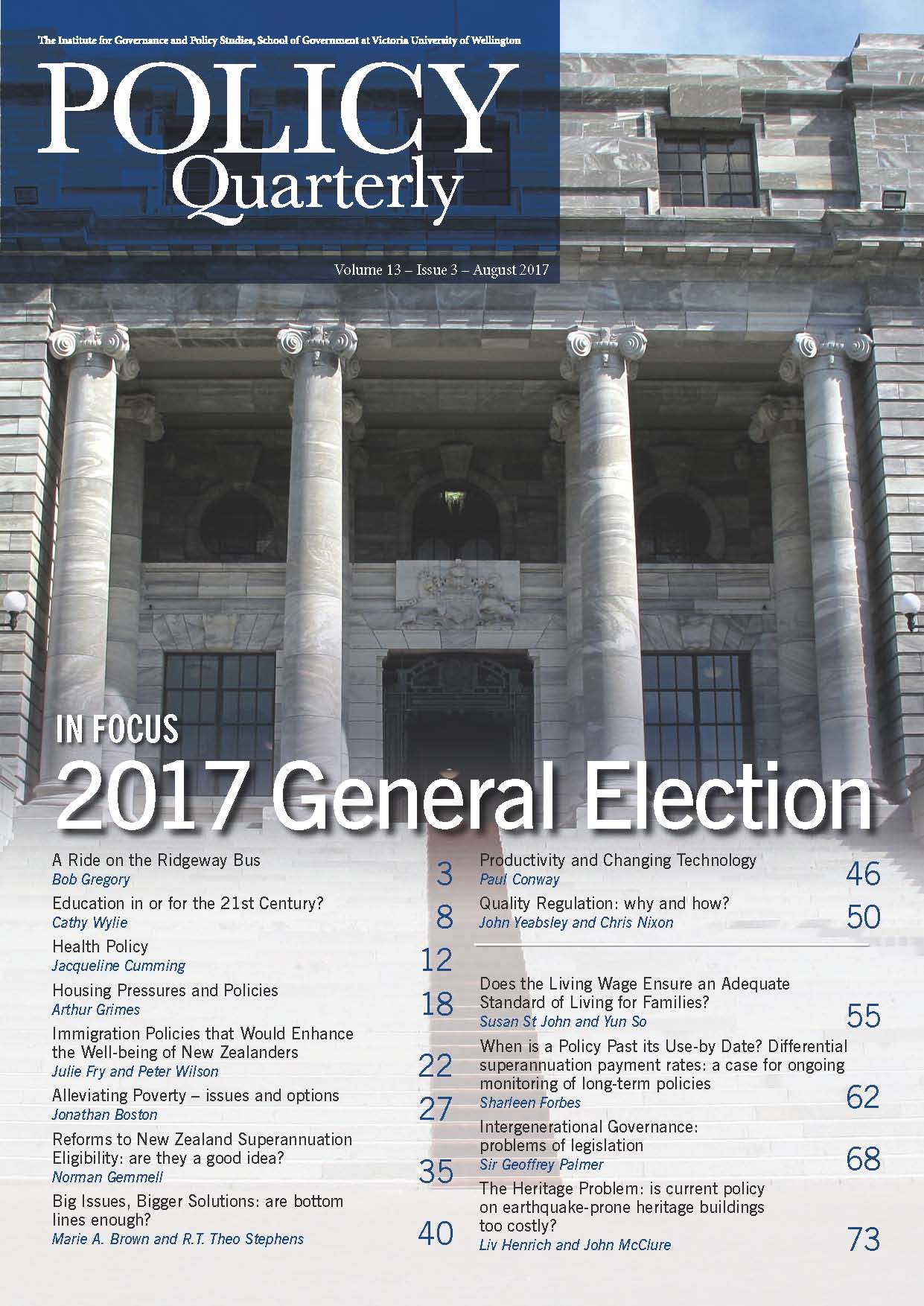Education in or for the 21st Century?
DOI:
https://doi.org/10.26686/pq.v13i3.4667Keywords:
New Zealand’s productivity and economic wellbeing, Education (Update) Amendment Act, Better Public Services target, Early childhood education, school and tertiary sectors, New Zealand education, Ministry of Education, Education Review Office, national standards, 21st-century curriculum, Kähui AkoAbstract
The main policy problems facing education in 2017 relate to its resourcing, its structure, and the measurement of its performance and impact. Underneath the questions of whether government funding matches the greater expectations placed on education over the last decade, and whether structures need changing, or new players introduced, lies the question of what should be given most priority. Should education be most valued in terms of its contribution to increasing New Zealand’s productivity and economic wellbeing, which has been more and more to the fore in tertiary policy? Should it be most valued in relation to what can be quantitatively measured, focusing on achievement in the traditional ‘3Rs’ through national standards, and secondary qualifications, the emphasis in the first set of Better Public Services targets? Should it be most valued in terms of how well students develop the capabilities to contribute as citizens, form flourishing families, think critically and creatively, problem-solve, and act well in the face of an increasingly volatile natural and human world?
Downloads
Downloads
Published
Issue
Section
License
Permission: In the interest of promoting debate and wider dissemination, the IGPS encourages use of all or part of the articles appearing in PQ, where there is no element of commercial gain. Appropriate acknowledgement of both author and source should be made in all cases. Please direct requests for permission to reprint articles from this publication to Policy-Quarterly@vuw.ac.nz.



